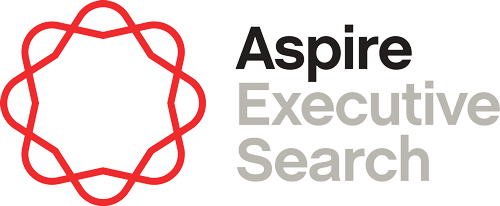Author: Scott Duncan

This week marks an interesting milestone for Aspire Executive Search, I’m just not sure how I feel about it.
About two years ago we decided to start measuring, and publicly reporting, on our performance from a gender diversity perspective.
We’ve always done okay, tending to hover between 40% – 42%.
This week, due to a flurry of appointments, we have reached 50%. That is to say, that over the past two years, exactly half of our placements have been women, and exactly half of our placements have been men.
We work across a very diverse range of clients – from multi-billion dollar turnover businesses employing over 20,000 people, to software start-ups taking on the world, and not-for-profits working to make our communities better.
Roles we’ve helped appoint during this time include CEOs, CFOs, CMOs, COOs, CCOs, CIOs, CTOs, (that’s a lot of Cs eh?) General Counsels and Independent Directors.
We work with many people who are passionate about addressing the gender inequity so clearly exhibited in New Zealand’s executive and governance ranks; and some who are content and comfortable with all male leadership teams or Boards.
And yet here we are, 50/50.
We started measuring our performance in this area because we believed we had a responsibility. Our country’s performance from a gender diversity perspective is limiting our global competitiveness, holding us back, and it’s not role modelling the type of society I want for my daughter or my son.
So, you’d think that I’d be over the moon with this week’s result.
But I’m not.
50/50 is not something to be gloating about. It’s not an amazing achievement. If your sample size is big enough, it should be expected. There shouldn’t be anything unusual about expecting or achieving some equality.
What is unusual, is the status quo that continues to confront us on a daily basis.
Even the most cynical amongst us must see there is something wrong with these numbers.
So where to from here?
My colleague will probably try and encourage me to be more positive and to celebrate the wins where we get them. I will probably relent momentarily.
But then we get back to work. We all need to get back to work. We have to attack this issue on all fronts. Shareholders must be more demanding of Boards. Boards must be prepared to hold a mirror up to themselves – what example are you setting? Chief Executives must insist on diverse leadership teams. HR leaders must have the courage to back up their convictions. Managers must be conscious of their overt and unconscious biases. You must start demanding diversity on your long and short lists when procuring recruitment services. Programmes to address this issue must be in place, and cultures intolerant of sexism, racism, and ageism must be built.
The glacial rate of improvement we see in our county suggests this endeavour may be a marathon not a sprint. Thank you to all of those people who encourage us and keep us energised on this topic. We’re lucky to work with some very inspirational women and men. To that point, we’ll have more news in the next few weeks about a programme we’ve piloted to continue addressing this issue.
Points of clarification:
– We know diversity means more than just gender. It means experience, perspective, ethnicity, orientation. We chose gender, rightly or wrongly, because it continues to be the “biggest bucket”. It’s also highly visible which makes measurement in our industry easier. If we can’t get the gender issue right, what hope do we have on the others?
– We obviously don’t make any of the final decisions as to who gets hired. We are committed to this cause however, and will take any opportunity to elevate diversity as a topic of conversation (being careful to tread that fine line between passionate and fundamentalist). We would never encourage our clients to make a sub-standard appointment due purely to gender however.


